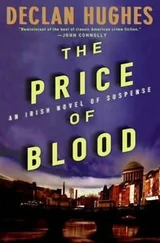It was a promise not likely to endear him to the king, should he hear of it.
‘Are you afraid that I will end up like Wulf and Ufegeat?’ he asked Edmund. Poor devils. They had been mere pawns in their father’s dangerous game, yet they had died miserably in a dank and fetid stone cell, their wounds, it was rumoured, gone untreated. Siferth and Morcar, it seemed, had been granted possession of the ravaged bodies of their kinsmen for burial, and they had borne witness to the consequences of the king’s wrath. Word of it had spread through the realm like wildfire.
‘Aren’t you afraid?’ Edmund turned the question back at him.
‘Yes,’ he growled, ‘I am. The king sees enemies everywhere and I am hardly invisible. But if he demands an accounting from me, I will give an honest answer. Someone has to speak openly to him about the uncertain temper of his nobles.’
Edmund was silent for a few moments. Then he said, ‘The king’s enemies are everywhere. Our northern border is under attack by the Scots, and the king’s spies have warned that the Danes will strike before summer’s end – God alone knows where. I think he was right to make an example of Ælfhelm. He has made it clear that he will punish treachery and disloyalty. It used to be that gold and lands and preferment were enough to keep men loyal. No longer, though. In times such as these, fear of punishment may be the only thing that will compel men to cleave to their king.’
‘But he is a weak king, Edmund, and no warrior. If the men inside his realm turn against him, it is because they fear he cannot protect them from the enemies who press us from outside. Mark me, there is a storm coming and we are ill prepared to meet it. Jesu , with Ælfhelm dead there is no longer an ealdorman in Northumbria or in Mercia. Who will organize the defence if the Danes strike the towns along the Trent or the Ouse?’
‘Eadric of Shrewsbury, judging by the trust the king has placed in him lately.’
‘Eadric!’ Athelstan snorted. ‘He is a henchman, not a warrior.’
‘Warrior or not, he is better than no leader at all,’ Edmund countered.
As to that, Athelstan had his doubts. What they needed was time – time to consult over the leadership of the northern shires, time to bring in the harvest, time to prepare and stock the burhs for defence. He had begged the churchmen he had spoken with to pray for time so that they could gather strength to meet their enemies.
But as Edmund said, there was already fighting along the border with the Scots, and he feared there was an ill wind blowing across the Danish sea. The one thing that the people of England did not have was time.
They were over the bridge now, the island behind them, and the gates of the palace rose ahead, reinforced, he noted, by a triple guard. Within the walls all was clamour and mayhem, far surpassing the everyday comings and goings of servants, retainers, and men-at-arms. He had difficulty guiding his mount past men sorting through piles of arms and equipment, women and children scurrying from building to building weighed down with bundles, and grooms loading horses and pack mules.
The king’s household was preparing to move, but there was nothing orderly or methodical about these preparations. Something was wrong, something more pressing than the Scots’ invasion of far-off Northumbria.
He and Edmund dismounted, tossed their reins to a groom, and went into the hall. Here, too, all was chaos, except for a table full of scribes who sat writing furiously on wax tablets. Instructions from the king to his royal thegns, Athelstan guessed. He paused to address a steward who was hurling curses at a trio of slaves that was frantically packing silver candlesticks and goblets into chests.
‘What is amiss?’ he asked.
‘Danish ships have been sighted at Sandwich, my lord. We’ve not been told yet where we are to go, but word has come down that we are leaving on the morrow.’
Athelstan glanced at his brother and knew that they were thinking the same thing. Time had just run out.
Inside the royal apartment, the king sat at a central table with a small circle of advisers about him. Athelstan, flicking his gaze around the chamber, found Emma in an alcove lit by a bank of candles. Her Norman priest, Father Martin, stood at a writing table beside her, his stylus moving swiftly across the parchment laid out before him.
Emma must have heard them enter, for she looked up just then and their eyes met, and held, and the silent communion that was both torment and consolation flashed between them. Then she looked away, and he turned his attention to the men around the king. His younger brothers were there, as was Ælfric, Ealdorman of Hampshire. Bishop Ælfheah was there too, and then he corrected himself, for the man who had been bishop of Winchester was now archbishop of Canterbury – one of the wisest appointments his father had ever made. There were several lesser lords among the assembly as well, and he noted with misgiving that Eadric of Shrewsbury stood at the king’s right hand.
With Edmund right behind him, he made his way through the men gathered about the table. The king drew his gaze from a roughly drawn map that covered most of the table to frown at them and, to Athelstan’s surprise, gestured them to come closer.
‘I had not thought to see you here,’ his father said, ‘but your arrival is timely. You’ve heard?’
‘Yes,’ Athelstan replied. Apparently it took the threat of a Viking army to win him his father’s regard. He peered at the map. ‘How large is their force?’
‘Sixty ships, curse them. Near two thousand men. They have already begun to move west from Sandwich.’ He expelled a breath and sat back heavily in his chair. ‘I had not expected them to come so soon,’ he murmured. ‘I thought we had another month at least.’
‘Is it Swein who leads them?’ Athelstan asked.
‘No, but that is the only good news,’ his father said. ‘With the harvests not yet in we will be short on men and on food stores. Christ! ’ He ran his hand wearily over his eyes. ‘We shall have to fortify the burhs across Wessex and strike at them piecemeal, harry their flanks like midges in a swamp.’
Athelstan glanced at the faces around the table and found there little relish for this plan. It was what they had done for years, and for years it had been a tactic that had led to failure. What they needed to do was to bring a massive army against the shipmen and beat them back into the sea, but England was ill prepared for such an endeavour. Any army they could raise would be composed for the most part of men whose hands were more used to grasping the handles of a plough than the hilt of a sword, while their enemies would be fierce Danish shipmen who were weapon-trained and battle-ready.
Athelstan turned to the archbishop. ‘If they strike at Canterbury, will the city be able to hold against them?’ he asked.
‘Our walls are in good repair,’ Ælfheah replied, ‘so we can withstand them for some days.’
Athelstan nodded. ‘Likely they have not come to lay siege but to strike quickly and grab whatever is not nailed down. It is the smaller towns and abbeys of Kent and Surrey that will be vulnerable if the raiders sail westward’ – he moved his finger along the line that marked England’s southern coast – ‘and if they decide to strike to the north it will be the towns along our eastern shores at risk.’
The king was frowning at the map. ‘I will call out the forces of Mercia and Wessex, all the men who can be spared from the fields and even many who cannot. Their commanders will meet me at Windsor to organize the defence, but it will take time for them to gather. Meantime we must get fighting men into the burhs in the southeast as soon as may be. The Danes will not stray far from their ships, so we should strive to keep them confined to the coast.’ He turned to Ælfric. ‘How many of your house guards are here with you?’
Читать дальше












